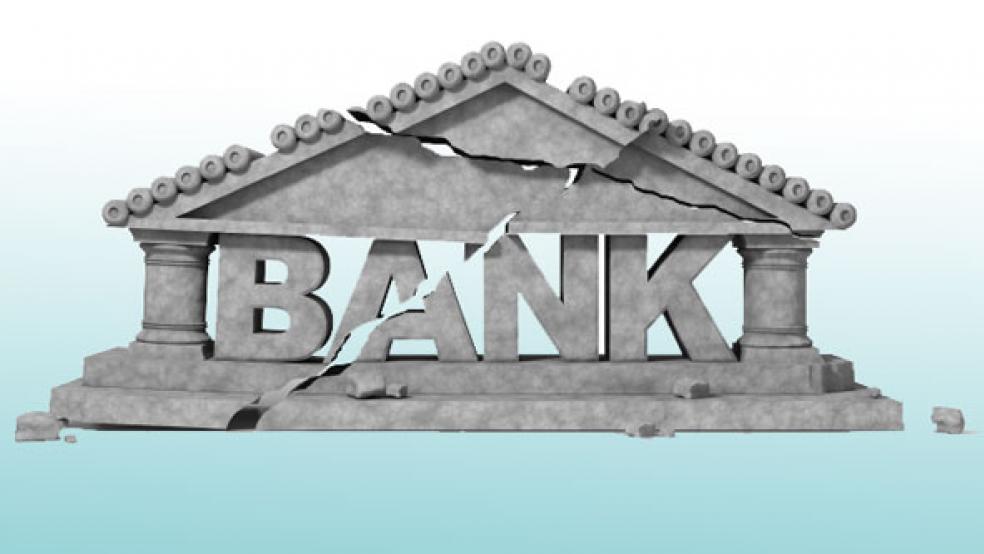Imagine a bank that not only gives your creditors access to your account but lets them siphon off your money. Prosecutors are reportedly eyeing up to 50 institutions for doing just that.
One lawsuit filed in Federal District Court in North Carolina alleges that a bank remained willfully ignorant of a scheme by which online lenders used its access to the payments system to rip off consumers. The lawsuit, filed by federal prosecutors, claims that Four Oaks Bank & Trust, of Four Oaks, N.C., allowed its access to the payments system to be used to make millions of transactions on behalf of a so-called “third party payment provider.” Many of those transactions, according to prosecutors, drained funds from the accounts of people doing business with online payday lenders, often illegally.
Related: The Sneaky Hidden Clause in Credit Card Agreements
Banks are subject to rules that require them to know who they are doing business with, so that criminals and terrorists are unable to use access to the payments system to launder money. In the case of Four Oaks, the bank’s direct client was an unidentified third party payment processor, referred to in court documents as TPPP-TX.
The payment processor stands as a middleman between merchants and banks in electronic transactions, initiating deposit and withdrawal requests. It collects a fee from the merchant and pays banks like Four Oaks a fee to provide access to the payments system.
However, prosecutors allege that bank employees eventually determined that TPPP-TX was using Four Oaks to process payments on behalf of lenders operating illegally in various states. Prosecutors cite examples of lenders charging extortionate interest rates, and contracts that deliberately misled borrowers in order to drive them into an endless cycle of increasingly unmanageable debt.
Feds Blow $100 Billion Annually on Incorrect Payments
When a bank employee tried to block one lender who was charging 521 percent interest, a senior executive overruled the decision.
In an email exchange with TPPP-TX, one bank official tried to verify that a TPPP-TX customer was actually a licensed lender. A TPPP-TX manager responded, “Asking opens legal issues that are not worth the time or trouble….I want no legal responsibility for whether it is legal to lend into a state…and my strong guess is that you don’t either.”
The bank executive responded, “You don’t think there’s huge potential liability for ignoring the fact that certain transactions could potentially be illegal, and not doing the due diligence and monitoring to ensure they aren’t?...I’m not sure don’t ask / don’t tell is going to be a reasonable defense, if a state comes after one of our originators.”
According to prosecutors, despite knowing that it was facilitating illegal activity, Four Oaks continued doing business with TPPP-TX. Beginning in 2009, the bank allowed TPPP-TX to initiate some 9.8 million debits from bank accounts across the country, for a total of $2.4 billion in payments. For that, the bank was paid $850,000 in fees.
Should Mortgage Giants Pursue Borrowers Who Walked Away?
The case against Four Oaks is part of a larger “Operation Choke Point” that the Department of Justice has launched to combat predatory lending activity. The DOJ action is complemented by another effort, by the Consumer Financial Protection Bureau, to rein in abusive lending practice.
“The complaint against Four Oaks Bank is drafted broadly and is probably intended to send a warning to banks dealing with third-party payment processors,” said an analysis by the law firm Ballard Spahr.
However, the effort to hobble payday lenders hasn’t gone unnoticed by critics, who view payday loans as an important financial tool for the poor, and fear that restricting access to such loans will push consumers toward other, completely unregulated lenders.
In a letter to Attorney General Eric Holder, Rep. Darrell (R-Ca.), chair of the House Committee on Oversight and Government Reform, said he believes “the true goal of Operation Choke Point is not to cut off actual fraudsters’ access to the financial system, but rather to eliminate legal financial services to which the Department objects.”
Top Reads from The Fiscal Times:





